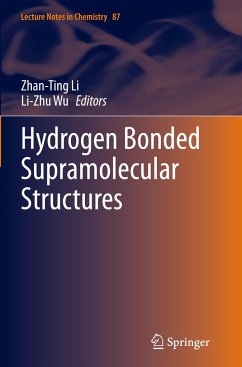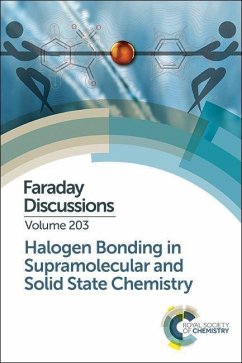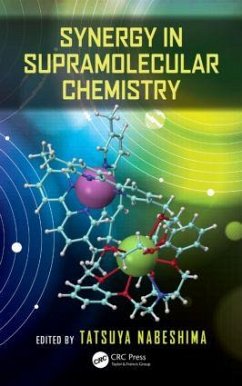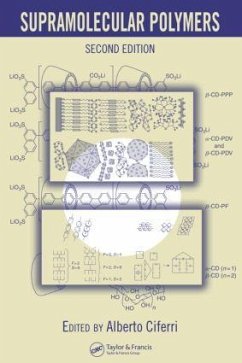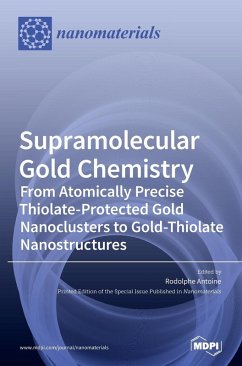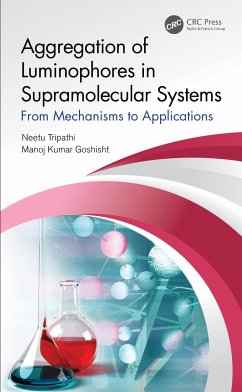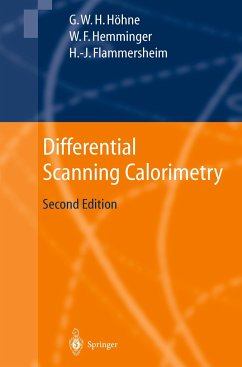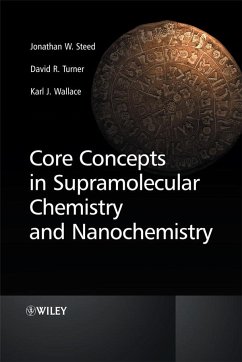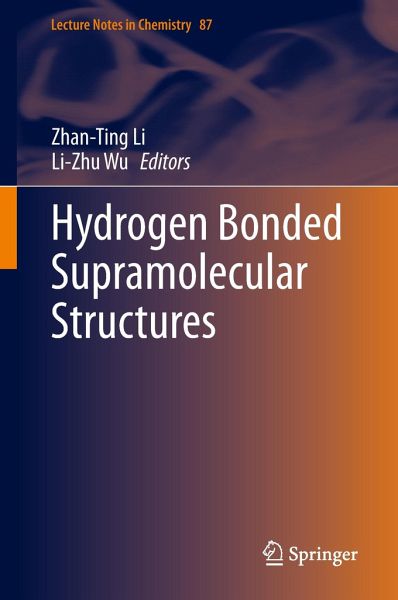
Hydrogen Bonded Supramolecular Structures

PAYBACK Punkte
19 °P sammeln!
This book covers the advances in the studies of hydrogen-bonding-driven supramolecular systems made over the past decade. It is divided into four parts, with the first introducing the basics of hydrogen bonding and important hydrogen bonding patterns in solution as well as in the solid state. The second part covers molecular recognition and supramolecular structures driven by hydrogen bonding. The third part introduces the formation of hollow and giant macrocycles directed by hydrogen bonding, while the last part summarizes hydrogen bonded supramolecular polymers.This book is designed to bring...
This book covers the advances in the studies of hydrogen-bonding-driven supramolecular systems made over the past decade. It is divided into four parts, with the first introducing the basics of hydrogen bonding and important hydrogen bonding patterns in solution as well as in the solid state. The second part covers molecular recognition and supramolecular structures driven by hydrogen bonding. The third part introduces the formation of hollow and giant macrocycles directed by hydrogen bonding, while the last part summarizes hydrogen bonded supramolecular polymers.
This book is designed to bring together in a single volume the many important aspects of hydrogen bonding supramolecular chemistry and will be a valuable resource for graduates and researchers working in supramolecular and related sciences.
Zhan-Ting Li, PhD, is a Professor of Organic Chemistry at the Department of Chemistry, Fudan University, China.
Li-Zhu Wu, PhD, is a Professor of Organic Chemistry at the Technical Institute of Physics and Chemistry, Chinese Academy of Sciences, China.
This book is designed to bring together in a single volume the many important aspects of hydrogen bonding supramolecular chemistry and will be a valuable resource for graduates and researchers working in supramolecular and related sciences.
Zhan-Ting Li, PhD, is a Professor of Organic Chemistry at the Department of Chemistry, Fudan University, China.
Li-Zhu Wu, PhD, is a Professor of Organic Chemistry at the Technical Institute of Physics and Chemistry, Chinese Academy of Sciences, China.






